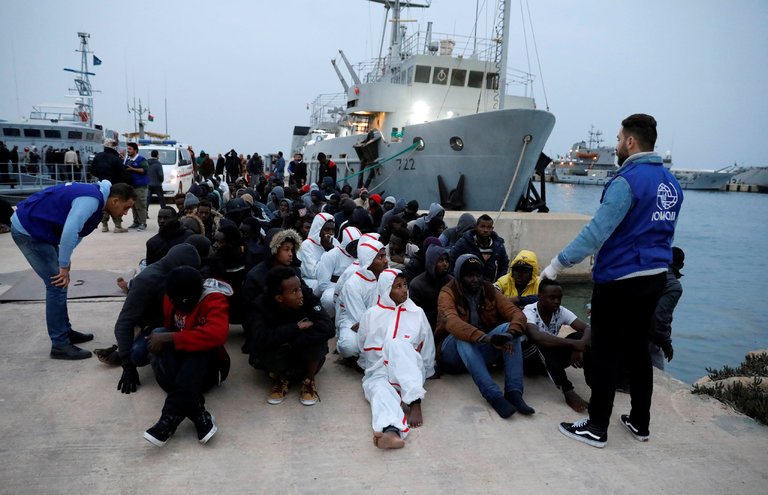Libya Rescues 279 Migrants at Sea, but 100 More Are Feared Dead

Migrants were taken to a naval base in Tripoli, Libya, on Tuesday after being rescued by the country’s coast guard. Credit Hani Amara/Reuters

TRIPOLI, Libya — The Libyan Navy said on Wednesday that its Coast Guard had rescued at least 279 migrants off the coast of Libya, but that about 100 more were missing and feared dead.
The migrants, mostly Africans, had been packed into several vessels hoping to cross the Mediterranean and reach southern Europe. The missing appeared to have all been in the same dinghy, whose remnants were found near the city of Khoms, the navy said.
Search-and-rescue efforts continued for more than 12 hours in rough conditions, the navy said. All of the survivors, including 19 women and 17 children, were taken to a naval base in the capital, Tripoli, and were later handed over to Libya’s anti-migration authority.
The United Nations migration agency estimates that more than 3,100 migrants died while trying to cross the Mediterranean in 2017, a number attributed to smugglers’ use of small dinghies and other poor-quality vessels.
Libya descended into chaos after the 2011 uprising that toppled and killed the longtime dictator Col. Muammar el-Qaddafi. The country has since become part of a common route to Europe for those fleeing poverty and conflict.
The vast North African country is home to competing governments and parliaments, with real power held by an array of militias, many of which make money from trafficking migrants. But the Libyan authorities — under pressure from Italy, where many of the migrants enter Europe — have recently stepped up efforts to stem their flow.
The flood of migrants across the Mediterranean over the past few years has prompted the European Union to take numerous measures, including training and equipping the Libyan Coast Guard to stop boats from trying the sea crossing. Such measures helped bring down the numbers of migrants crossing to Europe by more than half in 2017 compared with the previous year.
But rights groups fear that the measures could also leave tens of thousands of people stranded in Libya, where migrants have described starving in detention centers and suffering abuse.
The International Organization of Migration estimates that more than 171,300 migrants entered Europe in 2017, compared with roughly 363,500 in 2016.
By




